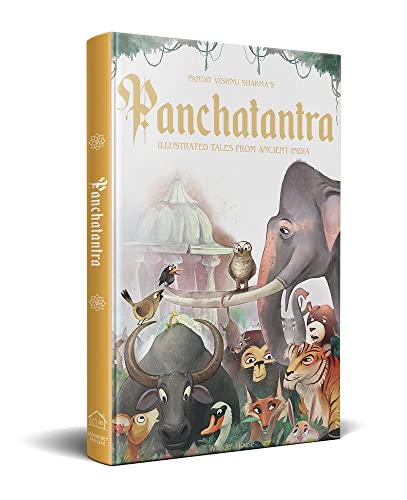Chapter 3, R.K. Laxman’s ‘Iswaran the Storyteller’ Summary, Vocabulary, Theme, Important Passages, Textbook Exercises and Additional Questions and Answers.
Chapter 3- Iswaran the Storyteller by R.K. Laxman:
Table of Contents
From Beehive: Class 9- ‘The Snake and the Mirror‘, Class 9- ‘The Lake Isle of Innisfree‘
Vocabulary:
| Auspicious: favourable or indicating a positive outcome. Autosuggestion: a psychological process where a person influences their thoughts or feelings. Bachelor: an unmarried man. Conjure: to bring about or create something seemingly out of nowhere. Chill: a feeling of cold or fear. Credible: believable or convincing. Delicacies: refined or luxurious food. Depredations: acts of plundering or destroying. Figment: something imagined or invented. Guttural: a deep, throaty sound. Hypnotised: influenced or captivated as if by hypnosis. Ill-equipped: lacking necessary equipment or resources. Ju-jitsu: a Japanese martial art that uses an opponent’s force against them. Makeshift: temporary or improvised. Prologue: an introduction or preface to a story. Rooftop: the top of a building. Subconscious: the part of the mind that is not currently in focal awareness. Thrall: deeply engrossed or captivated. Tusker: a male elephant with large tusks. Unease: a feeling of discomfort or anxiety. |
Idiomatic Expressions used in the story ‘Iswaran the Storyteller’:
| To keep an eye on: to monitor or supervise. Up early in the morning: to wake up and start the day early. Out of nowhere: appearing suddenly and unexpectedly. Leave the story unfinished: to stop telling a story before it is complete. Left hanging: left in suspense or uncertainty. Stretch himself back: to recline or lean back comfortably. Hypnotised: fascinated or captivated. A figment of your imagination: something that is imagined rather than real. A sea of darkness: an extensive area of darkness. Broke into a cold sweat: to suddenly start sweating from fear or anxiety. A chill went down one’s spine: to experience a sudden fear or horror. |
Summary “Iswaran the Storyteller”:
“Iswaran the Storyteller” by R.K. Laxman is about Mahendra, a construction supervisor, and his cook, Iswaran. Iswaran is an excellent storyteller who often narrates thrilling tales.
One night, he tells Mahendra about a ghost in their area, which makes Mahendra feel uneasy. Despite his disbelief in ghosts, Mahendra hears strange sounds one night and sees a ghostly figure, which frightens him.
The next day, Iswaran mentions the ghost again, confirming Mahendra’s fears. Terrified, Mahendra decides to leave the place immediately. The story highlights Iswaran’s talent for storytelling and its impact on Mahendra.
Theme “Iswaran the Storyteller”:
1. Superstition and Rationality: The contrast between superstition and rationality is evident. Mahendra initially dismisses Iswaran’s ghost stories as nonsense, but eventually, the power of suggestion and fear makes him believe in the supernatural.
2. Power of Storytelling: The story emphasises the impact and power of storytelling. Iswaran’s vivid and dramatic tales captivate Mahendra, showcasing how a good story can influence people’s thoughts and emotions.
3. Fear and Imagination: The story explores how imagination can amplify fear. Iswaran’s detailed descriptions and Mahendra’s subsequent experiences highlight how the mind can create terrifying scenarios from mere suggestions.
Character Sketch “Iswaran the Storyteller”:
1. Character Sketch of Iswaran: The Master Storyteller
1. Personality:
- Cheerful: Maintains a positive and lively demeanour.
- Brave: He claims to be unafraid of supernatural occurrences, though his tales suggest otherwise.
- Dramatic: Adds theatrical elements to even mundane events, making them seem extraordinary.
- Adaptable: Follows Mahendra to various remote locations without complaint.
- Resourceful: Manages to produce fresh vegetables and ingredients in lonely places.
- Devoted: Shows unwavering loyalty and dedication to Mahendra.
2. Professional Skills:
- Skilled Cook: Prepares delicious meals, receiving praise for his culinary talents.
- Hardworking: Takes care of all household chores, including cooking, cleaning, and laundry.
3. Storytelling Abilities:
- Imaginative: Spins engaging and dramatic tales with elaborate details.
- Expressive: He uses gestures and voice modulation to enhance his storytelling.
- Suspenseful: He often leaves his stories unfinished, keeping the listener in suspense.
4. Influences:
- Voracious Reader: Reads popular Tamil thrillers, which inspire his narratives.
- Cultural Touchstone: Draws on local legends and folklore in his stories.
5. Impact on Others:
- Entertaining: Provides Mahendra with engaging stories, compensating for the lack of entertainment.
- Influential: His stories affect Mahendra deeply, leading to fear and eventual belief in the supernatural.
Iswaran is a multifaceted character whose storytelling prowess and loyalty make him indispensable to Mahendra. His tales blur the line between reality and fiction, showcasing the power of narrative in shaping perceptions.
2. Character Sketch of Mahendra: The Pragmatic Supervisor:
1. Personality:
- Realistic: Grounded in reality, prefers practical explanations over fantastical ones.
- Courageous: Tries to maintain his composure and dismiss fears, even when influenced by Iswaran’s tales.
- Open-Minded: Though sceptical, he remains open to listening to Iswaran’s stories, indicating a balanced nature.
- Independent: He lives a simple life with minimal needs and is suited to his bachelor lifestyle.
- Practical: Values rationality and logic, initially dismissing superstitions and ghost stories.
- Resilient: Manages to cope with the harsh and sometimes primitive living conditions at work sites.
2. Professional Traits:
- Diligent: Works as a junior supervisor, overseeing various construction sites.
- Adaptable: Adjusts to different work environments, whether in coal mines, railway sites, or chemical plants.
- Mobile: Frequently relocates as required by his job, showcasing flexibility.
3. Interactions with Others:
- Supportive: Appreciates Iswaran’s company and storytelling, enjoying the tales despite his scepticism.
- Respectful: Treats Iswaran well, enjoying their conversations and the cook’s culinary skills.
4. Reaction to Storytelling:
- Engaged Listener: Listens to Iswaran’s stories attentively, often finding them entertaining and captivating.
- Sceptical: Initially dismisses Iswaran’s ghost stories as figments of imagination.
- Influenced: Despite his rational nature, Iswaran’s stories affect him, leading to fear and unease.
5. Behavioural Changes:
- Anxious: After hearing the ghost stories, he becomes uneasy at night and avoids the window on full-moon nights.
- Fearful: He experiences a frightful encounter with what he believes to be a ghost, which leads to a significant decision.
6. Decisive Actions:
- Determined: Resolves to leave the haunted place immediately after being convinced of the supernatural presence.
- Proactive: Hands in his papers and plans his departure promptly, showing his ability to take quick actions when needed.
Mahendra is a dedicated and practical individual whose logical mindset is challenged by Iswaran’s compelling storytelling. His evolution from scepticism to belief in the supernatural highlights the power of narrative and its impact on human psychology.
Question Answers “Iswaran the Storyteller”:
Think About It:
Q1: In what way is Iswaran an asset to Mahendra?
A1: Iswaran is an asset to Mahendra because he handles all his daily needs, such as cooking meals and washing clothes. He also provides company and entertains Mahendra with his exciting and dramatic stories. Mahendra’s life becomes easier and more enjoyable, especially since he moves to different, often remote work sites.
Q2: How does Iswaran describe the uprooted tree on the highway? What effect does he want to create in his listeners?
A2: Iswaran describes the uprooted tree on the highway as a huge, scary, bushy beast lying across the road. He adds suspense and makes it sound frightening to create a sense of drama and excitement. He wants his listeners to feel intrigued and shocked by his story, even if the reality is much less dramatic.
Q3: How does he narrate the story of the tusker? Does it appear to be plausible?
A3: Iswaran narrates the tusker’s story in a dramatic, thrilling way. He describes the elephant causing chaos and how he bravely confronted it using a stick. His story seems exaggerated and less plausible because it includes dramatic actions and outcomes that are hard to believe, such as his stopping the elephant with a single strike.
Q4: Why does the author say that Iswaran seemed to more than make up for the absence of a TV in Mahendra’s living quarters?
A4: The author (R.K. Laxman) says Iswaran made up for the lack of TV because his storytelling was so entertaining and captivating. Even without a television, Mahendra was kept entertained and amused by Iswaran’s exciting, dramatic stories, which filled the entertainment gap.
Q5: Mahendra calls ghosts or spirits a figment of the imagination. What happens to him on a full-moon night?
A5: Mahendra thinks that ghosts are just imaginary, but on a full-moon night, he experiences something that makes him doubt his belief. He wakes up to a strange, low-moaning sound outside his window, which he first thinks is from a cat.
However, the sound is too eerie for a cat. He sees a dark, shadowy figure holding a bundle in the moonlight. The sight terrifies him, making him believe that the ghostly stories Iswaran told might be true. The fear from this experience is so intense that he decides to leave his job and move awayimmediately.
Q6: Can you think of some other ending for the story?
A6: An alternative ending could be that Mahendra, after seeing the ghostly figure, decides to investigate further and discovers that it was just a natural, explainable event, like someone outside with a bundle of clothes.
This discovery could lead Mahendra to realise that Iswaran’s stories were just tall tales and decide to confront Iswaran about them, possibly resulting in a humorous or revealing conversation about truth and imagination.
Talk About It:
Is Iswaran a fascinating storyteller? Discuss with your friends the qualities of a good storyteller. Try to use these qualities and tell a story.
Qualities of a Good Storyteller:
- Engaging: Captures the audience’s attention.
- Dramatic: Uses suspense and excitement to keep listeners interested.
- Descriptive: Provides vivid details to make the story come alive.
- Expressive: Uses voice, gestures, and facial expressions to convey emotions.
- Inventive: Creates imaginative and creative plots.
- Relatable: Includes elements that the audience can connect with or find intriguing.
Sample:
| In a quiet hill school, there was a lab attendant named Mr. Joshi who worked in the science lab. One day, he sadly passed away, but his spirit stayed in the lab. After his death, strange things began to happen. Whenever the children were in the lab, Mr Joshi’s ghost would appear. He would watch the kids as they conducted their experiments. If they made a mistake or got scared, Mr. Joshi would cackle loudly, making their fear worse. The ghostly sound echoed around the room, making the children jump and drop their test tubes. Despite their fear, the children slowly became braver and learned to focus on their work. They started to joke about the “ghostly lab assistant” and even included it in their lab stories. In the end, they realised that Mr. Joshi’s spirit was just playing around and helping them become better scientists. |
Extra Questions “Iswaran the Storyteller”:
Short Answer Type Questions:
Q1: What kind of job did Mahendra have, and what did it entail?
Q1: Mahendra was a junior supervisor who worked at various construction sites. His job involved overseeing activities at factories, bridges, and dams. He frequently moved from one site to another, ensuring everything ran smoothly and according to plan.
Q2: Describe Iswaran’s abilities and his relationship with Mahendra.
A2: Iswaran was an excellent cook and very resourceful. He could find ingredients and prepare delicious meals anywhere. He was loyal to Mahendra, following him to different work sites and caring for his needs. Their relationship was close, with Iswaran serving as a helper and a companion.
Q3: How did Iswaran narrate his stories, and how did they affect Mahendra?
A3: Iswaran narrated his stories with great drama, using suspense and surprise endings. He often included exaggerated details and vivid descriptions. Mahendra enjoyed these stories, finding them entertaining and engaging, even though they sometimes left him uneasy or spooked.
Q4: What was Iswaran’s explanation for his ability to control the elephant?
A4: Iswaran explained that he controlled the elephant using a technique from a Japanese martial art, like karate or ju-jitsu. He claimed that striking the elephant’s third toenail temporarily paralysed its nervous system, making it collapse.
Q5: How did the supernatural story Iswaran told affect Mahendra?
A5: The supernatural story Iswaran told made Mahendra uneasy. Even though he dismissed it as nonsense, he couldn’t stop thinking about it. This affected his sleep and made him avoid looking outside on full-moon nights, fearing he might see a ghost.
Q6: What did Mahendra experience one night that made him leave the place?
A6: One night, Mahendra heard a low moan outside his window. He saw a dark shape clutching a bundle in the moonlight, which scared him deeply. The following day, Iswaran mentioned the ghost again, prompting Mahendra to leave immediately.
Q7: How did Iswaran respond after Mahendra’s sceptical reaction to his ghost stories?
A7: After Mahendra’s sceptical reaction to his ghost stories, Iswaran remained cheerful and talkative the next day. He did not sulk or seem upset. This showed that Iswaran was not easily offended and maintained his positive demeanour despite Mahendra’s disbelief.
Q8: What kind of books did Iswaran enjoy reading, and how did they influence him?
A8: Iswaran enjoyed reading popular Tamil thrillers with imaginative descriptions and narrative flourishes. These books influenced his storytelling style, making his tales dramatic and suspenseful. He often used vivid descriptions and surprise endings, which he likely learned from the thrillers he read.
Q9: How did Mahendra react to Iswaran’s storytelling style?
A9: Mahendra reacted to Iswaran’s storytelling style with enjoyment and fascination. He listened uncritically and found the stories entertaining, even if they were exaggerated or unbelievable. Iswaran’s stories provided Mahendra with amusement and distraction from his daily routine.
Q10: What was the setting for Iswaran’s story about the mad elephant?
A10: The setting for Iswaran’s story about the mad elephant was his hometown, surrounded by a richly wooded forest. The elephant escaped from the timber yard, caused chaos in the town, and even entered a school playground, frightening everyone until Iswaran bravely subdued it.
Q11: What led Mahendra to believe that the supernatural events were real?
A11: Mahendra began to believe the supernatural events were actual after he heard a low moan outside his window one night. When he looked out, he saw a dark shape in the moonlight, which matched Iswaran’s description of the ghost, making him doubt his scepticism.
Q12: How did the factory’s location play a role in Iswaran’s ghost story?
A12: The factory’s location played a role in Iswaran’s ghost story because it was built on an old burial ground. Iswaran claimed to have found human skulls and said he sometimes saw ghosts at night, adding to the eerie atmosphere and Mahendra’s growing fear.
Q13: Describe the change in Mahendra’s behaviour after hearing Iswaran’s ghost stories.
A13: After hearing Iswaran’s ghost stories, Mahendra became uneasy. He began to feel scared at night, especially during full moons. He avoided looking out his window and constantly checked for unusual movements or sounds outside, indicating that the stories had a substantial impact on him.
Q14: What was Iswaran’s reaction when Mahendra complimented his cooking on the auspicious day?
A14: When Mahendra complimented Iswaran’s cooking on the auspicious day, Iswaran seemed delighted. He unexpectedly launched into a vivid, garish ghost story, demonstrating his love of storytelling and his habit of seizing any opportunity to share his tales, even in ordinary moments.
Q15: What prompted Mahendra to hand in his papers and decide to leave?
A15: Mahendra decided to hand in his papers and leave after experiencing a terrifying night. He saw a dark, ghostly figure outside his window, matching Iswaran’s description of a ghost. This frightening experience made him believe the place was haunted, prompting him to leave immediately.
Long Answer Type Questions:
Q1: How does Iswaran’s storytelling ability impact Mahendra’s experience at various construction sites, and what does this reveal about their relationship?
A1: Iswaran’s storytelling ability significantly impacts Mahendra’s experience at various construction sites by providing entertainment and companionship. Mahendra often worked in remote, sometimes harsh locations that could be lonely and monotonous.
Iswaran’s engaging and dramatic stories brought excitement and distraction, making the environment more enjoyable and lively. His storytelling also revealed the close relationship between Mahendra and Iswaran. Mahendra uncritically listened to Iswaran’s tales, indicating his trust and fondness for his cook.
Even though Iswaran’s stories were hard to believe, Mahendra appreciated having Him around and listening to them. Their relationship showed that Iswaran was not just a servant but an important part of Mahendra’s life, giving him emotional support and companionship.
Q2: Describe how Iswaran’s cooking skills and resourcefulness are portrayed in the story. How do these traits contribute to his character and Mahendra’s reliance on him?
A2: The story portrays Iswaran’s cooking skills and resourcefulness as exceptional. He could prepare delicious meals even in the most desolate locations, finding fresh vegetables and ingredients seemingly out of nowhere.
Iswaran’s ability to conjure tasty dishes under challenging conditions highlights his ingenuity and adaptability. These traits contribute significantly to his character, showing him as a dependable and talented individual who can handle any situation. These qualities strengthen Mahendra’s reliance on Iswaran.
Iswaran provided essential services, such as cooking and cleaning, making Mahendra’s life more comfortable and pleasant. Iswaran became indispensable to Mahendra, allowing him to focus on his work without worrying about his daily needs.
Q3: Examine the significance of the supernatural elements in the story. How do Iswaran’s ghost stories influence Mahendra’s perception of reality and his actions?
A3: The supernatural elements in the story add intrigue and suspense. Iswaran’s ghost stories significantly impact Mahendra’s perception of reality and actions. Initially, Mahendra dismisses the stories as nonsense. However, the vivid and eerie details of Iswaran’s tales gradually make Mahendra uneasy.
After hearing about the ghostly woman, Mahendra feels scared nightly, particularly during full moons. He avoids looking out his window and becomes more alert to strange sounds or movements. One night, he sees a ghostly figure outside his window, which terrifies him. His experience leads him to believe the place is haunted.
Ultimately, Iswaran’s ghost stories lead Mahendra to leave the construction site, showing how deeply they affected him.
Q4: Discuss the role of humour in the story, particularly in Iswaran’s anecdotes. How does R.K. Laxman use humour to enhance the narrative and develop the characters?
A4: Humour is key in the story, especially in Iswaran’s anecdotes. Iswaran often adds exaggerated details and dramatic gestures to his stories, making them amusing and entertaining. For example, he describes an uprooted tree as a “bushy beast” and mimics a mad elephant’s behaviour, which adds a comedic touch.
R.K. Laxman uses humour to make the narrative more engaging and lively. Humour also helps to develop Iswaran’s character, showing him as a creative and lively person who enjoys entertaining others. It contrasts with Mahendra’s more serious and practical nature, highlighting their different personalities.
The humour enhances the story by providing lighthearted moments and showing the bond between Mahendra and Iswaran through shared laughter and enjoyment.
Q5: Analyse the story’s conclusion. How does Mahendra’s reaction to the supposed ghost sighting highlight his character development and the story’s theme?
A5: The story’s conclusion shows Mahendra’s significant character development and reinforces the theme of fear and belief. Initially, Mahendra dismisses Iswaran’s ghost stories as nonsense. However, after experiencing a supposed ghost sighting, his attitude changes dramatically. Seeing the dark, ghostly figure outside his window frightens him deeply.
This reaction highlights Mahendra’s vulnerability and the power of fear, even in a rational person. His decision to leave the site immediately shows that, despite his scepticism, he is profoundly affected by the supernatural possibility.
The conclusion emphasises how deeply stories and imagination can influence perception and behaviour. It also reinforces the bond between Mahendra and Iswaran, as Iswaran’s storytelling ultimately drives Mahendra’s decision, showing the lasting impact of their interactions.
Q6: What are Iswaran’s unique skills and qualities that make him indispensable to Mahendra?
A6: Iswaran’s unique skills and qualities make him indispensable to Mahendra. Firstly, his exceptional cooking skills allow him to prepare delicious meals in any location, even in remote or challenging conditions. He is also highly resourceful, able to find ingredients and cook well despite limited resources.
Iswaran’s storytelling ability provides entertainment and companionship, making Mahendra’s otherwise lonely and monotonous work life more enjoyable. His adaptability and willingness to follow Mahendra wherever he is posted show his loyalty and dedication.
Iswaran’s combination of practical skills and engaging personality ensures that Mahendra relies on him for daily tasks, emotional support, and comfort.
Q7: How does Iswaran’s storytelling ability influence Mahendra’s daily life and experiences?
A7: Iswaran’s storytelling ability greatly influences Mahendra’s daily life and experiences by adding excitement and distraction. In the isolated and often dull environments where Mahendra works, Iswaran’s dramatic and imaginative tales offer entertainment and a break from routine.
His stories, filled with adventure and suspense, make Mahendra’s long, monotonous days more enjoyable. These stories also provide companionship, helping to ease Mahendra’s loneliness at different construction sites. Even though the tales are sometimes exaggerated or unbelievable, they engage Mahendra’s imagination and create a lively atmosphere.
Iswaran’s storytelling makes Mahendra’s work life more tolerable and less isolated, highlighting the importance of companionship and creativity in coping with challenging situations.
Q8: Summarise the anecdote involving the mad elephant that Iswaran recounts to Mahendra. What was Iswaran’s role in the incident?
A8: In Iswaran’s anecdote about the mad elephant, he describes a wild tusker who escaped from a timber yard and rampaged through his hometown. The elephant caused chaos, destroying market stalls, breaking school property, and frightening everyone.
As a young student, Iswaran witnessed the destruction of a school rooftop. Despite the danger, he bravely grabbed a cane and confronted the elephant. He claimed to use a technique similar to karate or ju-jitsu to paralyse the elephant’s nervous system by striking its third toenail. The elephant collapsed, and a veterinarian later revived it.
Iswaran’s role in the incident was that of a hero who courageously subdued the elephant, dramatically showcasing his bravery and resourcefulness.
Q9: What impact does Iswaran’s story about the female ghost have on Mahendra? How does it affect his behaviour and decisions?
A9: Iswaran’s story about the female ghost significantly impacts Mahendra. After hearing the detailed, eerie description of the ghost, Mahendra grows increasingly fearful. The story makes him anxious, especially on full-moon nights, and he avoids looking out his window.
Mahendra’s behaviour changes as he becomes more cautious and worried about supernatural events. The fear of the ghost story makes him feel uneasy and affects his sleep. One night, after hearing a moaning sound and seeing a dark figure outside, Mahendra is terrified and begins to believe the ghost story. This fear ultimately leads him to leave the construction site and hand in his papers, demonstrating how deeply Iswaran’s tale influenced his actions.
Important Passages from the story “Iswaran the Storyteller” by R.K. Laxman:
1. Mahendra’s lifestyle and Iswaran’s role:
“His needs were simple and he was able to adjust himself to…But one asset he had was his cook, Iswaran.”
- Mahendra didn’t need much to be happy. He could live comfortably in all kinds of difficult and strange places. For example, he could stay in a circuit house (a basic guesthouse for government employees) that had few facilities, or in a temporary tent set up in a stone quarry (a place where stones are dug up).
“The cook was quite attached to Mahendra and followed him …endless stories and anecdotes on varied subjects.”
- Mahendra had a devoted cook named Iswaran who met all his needs and kept him company by telling fascinating stories, making Mahendra’s challenging lifestyle more bearable and enjoyable.
| Context: The excerpts show that Mahendra can live in challenging situations without much trouble. They also show how important Iswaran is to him. Iswaran takes care of Mahendra by cooking and cleaning and entertains him with his storytelling. This helps understand the close relationship between Mahendra and Iswaran and sets the stage for the exciting stories that Iswaran tells. |
2. Iswaran’s resourcefulness:
“Iswaran also had an amazing capacity to produce vegetables …for miles around.”
- In the story, Iswaran can find and bring vegetables and other cooking ingredients even in a very remote and empty area with no shops nearby.
- No matter where Mahendra worked, Iswaran could magically source fresh ingredients for delicious meals, making their stay in isolated places more comfortable.
3. Iswaran’s storytelling style:
“His own descriptions were greatly influenced by the Tamil authors…suspense and a surprise ending into the account.”
Example of Iswaran’s storytelling: “The road was deserted and I was all alone…I saw that it was a fallen tree, with its dry branches spread out.”
| Context: In the story, Iswaran’s storytelling is very dramatic and exciting because he is inspired by Tamil authors who write thrillingly. Even when he talks about simple things, he adds suspense and tries to surprise his listeners. For example, when he describes finding something on the road, he makes it sound very mysterious and frightening at first, like it might be a big, scary animal. But then, he reveals that it’s just a fallen tree with branches spread out. The storytelling approach makes even ordinary events seem very interesting and keeps his audience engaged. |
4. The story of the mad elephant:
“One day a tusker escaped from the timber yard and began to roam about, stamping on bushes, tearing up wild creepers and breaking branches at will.”
“It came into the main road and smashed all the stalls selling fruits, mud pots and clothes. People ran helter-skelter in panic!”
“I grabbed a cane …stunned for a moment; then it shivered from head to foot — and collapsed.”
- Iswaran describes how he bravely acted during this situation. He saw the elephant causing trouble and decided to help. He took a stick from a teacher, went outside, and faced the huge, angry elephant.
- Even though the elephant was swinging a tree branch and looked dangerous, Iswaran struck it on a specific part of its foot. This surprised the elephant, causing it to shake and fall. Iswaran’s story is full of excitement and suspense, showcasing his dramatic storytelling.
| Context: Iswaran adds excitement to his tale by detailing his heroic actions during this chaotic event. He claims he bravely confronted the elephant, using a stick to strike it in a specific spot, causing the animal to collapse. This story is part of Iswaran’s larger pattern of storytelling, where he adds suspense and exaggeration to make ordinary events sound extraordinary. The context highlights Iswaran’s storytelling skill and his use of thrilling anecdotes to captivate his audience. |
6. Iswaran’s explanation of his feat:
“It has something to do with a Japanese art, I think, sir. Karate or ju-jitsu it is called. I had read about it somewhere. It temporarily paralyses the nervous system, you see.”
- Iswaran’s explanation is part of his storytelling style, where he adds a sense of mystery and excitement. Even though his explanation is likely exaggerated, it enhances the story’s dramatic and entertaining nature, making it more intriguing to Mahendra.
7. Introduction of the supernatural element:
“You know, sir, this entire factory area we are occupying was once a burial ground.”
“I knew on the first day itself when I saw a human skull lying on the path. Even now, I come across a number of skulls and bones.”
- Iswaran introduces a spooky, supernatural element into his storytelling. He begins by telling Mahendra that the factory area where they are staying was once a burial ground.
“One horrible ghost of a woman which appears off and on at midnight during the full moon… It is an ugly creature with matted hair and a shrivelled face, like a skeleton holding a foetus in its arms.”
- Iswaran explains that he noticed this on his first day when he saw a human skull on the ground, and he has found other bones and skulls since then.
- To make things even more frightening, he tells Mahendra about a ghostly woman who is said to appear at midnight during full moons. He describes her as a frightening figure with tangled hair and a skeletal face, holding something that looks like a baby.
| Context: Iswaran’s story is meant to be eerie and unsettling, adding a supernatural twist to make his tales more dramatic and exciting for Mahendra. This part of the story illustrates Iswaran’s talent for weaving suspenseful and spooky narratives. |
8. Mahendra’s reaction to the ghost story:
“You are crazy, Iswaran. There are no such things as ghosts or spirits…and maybe your head as well. You are talking nonsense.”
- Mahendra reacts strongly to Iswaran’s ghost story. He doesn’t believe in ghosts or spirits and thinks Iswaran’s story is made up in his imagination.
- Mahendra even suggests that Iswaran should get his stomach checked and possibly see a doctor for his thoughts, implying that he thinks Iswaran might be imagining things due to a health issue.
- This shows that Mahendra is sceptical and dismissive of the spooky story and does not take Iswaran’s ghostly claims seriously.
9. Mahendra’s experience of the supernatural:
“One night, Mahendra was woken up from his sleep by a low moan close to his window. At first … was a dark cloudy form clutching a bundle.”
- Mahendra experiences something that makes him believe in the supernatural. One night, he hears a strange, low moaning sound near his window, which he initially thinks might be a cat. However, the sound is too deep and eerie for a cat. Looking outside, he sees a dark, shadowy figure holding a bundle in the moonlight.
“A chill went down Mahendra’s spine. He did not wait for Iswaran … resolving to leave the haunted place the very next day!”
- The sight frightens Mahendra so much that he shivers and becomes very scared. He decides not to wait for any further explanation from Iswaran and quickly goes to his office to resign, planning to leave the spooky place the next day. This reaction shows that Mahendra is deeply disturbed by what he saw and is convinced that the place is haunted.
| Context: The scene where Mahendra sees what he believes to be a ghost is crucial because it confirms Iswaran’s stories for him. Despite his earlier scepticism, the frightening sight convinces Mahendra that the place is haunted. The fear is so intense that it prompts him to quit his job and leave immediately. The scene demonstrates the powerful effect of Iswaran’s storytelling on Mahendra’s beliefs and actions. |
****
Some links on this page may be affiliate links. This helps support MSRO CLASSROOM at no additional cost to readers.








